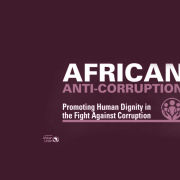|
Getting your Trinity Audio player ready...
|
Governance /ˈɡʌvənəns/
noun
- the action or manner of governing a state, organisation, etc.
Definition from Oxford Languages
If governance is the act of governing or overseeing the direction and running of an entity, then it is easy to imagine the concept of good and bad governance.
Bad governance, says the UN Economic and Social Commission for Asia and the Pacific (UNESCAP), is increasingly regarded as one of the root causes of all evil within societies around the world. Furthermore, major donors and international financial institutions are increasingly basing their aid and loans on the condition that reforms that ensure good governance are undertaken.
Government is just one of the players in governance, adds UNESCAP. Others include civil society, religious leaders, research institutes, political parties, financial institutes, and more. Working together (ideally), these entities ensure the application of good governance principles in all levels of society, from the top government leadership to the spaza shop around the corner, and in all sectors of the economy.
On 29 August Corruption Watch, with the National Business Institute and global thinktank ODI, released a report showing the havoc bad governance can wreak in the corporate sector, with their report titled Addressing Corporate Corruption in South Africa: The EOH Experience.
The turnaround of the IT multinational, from a highly corrupt company implicated in irregular government procurement, among others, and suffering a resulting decline in performance, to one that has since restructured and is now in a position to start again, is a clear example of how both bad and good governance can change a company’s fortunes and sustainability.
Global consensus on many issues
A new report – the Global Governance Survey (GGS) 2023 – released recently by the Global Governance Innovation Network – aims to show the governance issues respondents agree on, rather than those they disagree with. “This report … looks at the willingness of people in key countries around the world to support real, credible, and global solutions.”
The focus was on attitudes towards global governance, conflict, pandemic, and climate issues in the 12 G7 and BRICS countries – the US, Canada, UK, France, Germany, Italy, and Japan (G7) and Brazil, Russia, India, China, and South Africa (BRICS) – under six main sections:
- Megatrends—The Global Mood: Divided, Dangerous, and Worsening
- International Peace and Security: Hostility to Aggression, Support for International Law
- Pandemic Response and Socio-Economic Development: Progress and Desire for More
- Environmental Governance and Climate Action: A Broad Consensus For Change
- The Rule of Law and Inclusive International Governance: Readiness for Bold Measures
- Global Collective Action, Citizenship, and Leadership: Multilateralism and a Shared Identity.
Results show a mutual concern around conflict, economics, corruption, and other global issues, says report author Craig Charney, “as well as potential global governance responses to issues of peace and security, pandemics, climate change, and institutional reform”.
Respondents are in “surprisingly broad agreement”, Charney adds, about responses to aggression, war crimes, and international law and justice. In almost all G7 and BRICS countries, people show similar responses to war, peace, and conflict resolution, including a hostility to aggression and a willingness to penalise it.
Another major area of consensus is the continuing response to the Covid-19 pandemic, with respondents supporting measures to prevent another such occurrence while providing for universal health care.
In addition, “the citizens of the twelve countries display a marked preference for multilateral action on security, climate, global health and human rights issues”.
Across the global north and south, and from east to west, the GGS shows the spread of a sense of global citizenship and a sense of common humanity.
“Collective action and multilateral institutions are seen as the best ways to advance the common interests of citizens in all nations, whether on conflict, rights, climate, or health. People feel they are stakeholders in a connected world, not just individual countries.”
The most important finding, says the GGS, lies in its conclusion: “that the peoples of the countries surveyed are well ahead of their leaders in their willingness to accept innovation in global governance to confront the world’s challenges.”
Anti-corruption court a desired outcome
One of the good governance measures currently mooted by various organisations is the establishment of an international anti-corruption court (IACC).
CW reported on this as far back as 2018, and again in July 2023 – the topic surfaced once more at the recent Transparency International Africa regional meeting, where former Constitutional Court justice Richard Goldstone delivered the keynote address which focused substantially on his own work in advocating for an IACC.
The GGS found “substantial majorities for creating an international anti-corruption court. Fully 70% of respondents held this view, with just 15% opposing.
South African respondents showed the second highest approval percentage at 81%, after that of China which topped the poll with 87%. Other BRICS countries showing support were Brazil (80%) and India (74%).
Perhaps it is not surprising that the strongest opposition came from Russia, where just 53% of respondents supported the idea of an IACC, and the US (61%) as well as Japan (57%).
“Opposition is minimal, ranging from a low of 11% in the UK and China to a maximum of 23% in both the US and Russia.”
Other areas of agreement included making the UN Security Council more inclusive by broadening permanent membership and restricting the veto, and connecting UN bodies to other stakeholders, such as the G20 as well as national parliaments.








